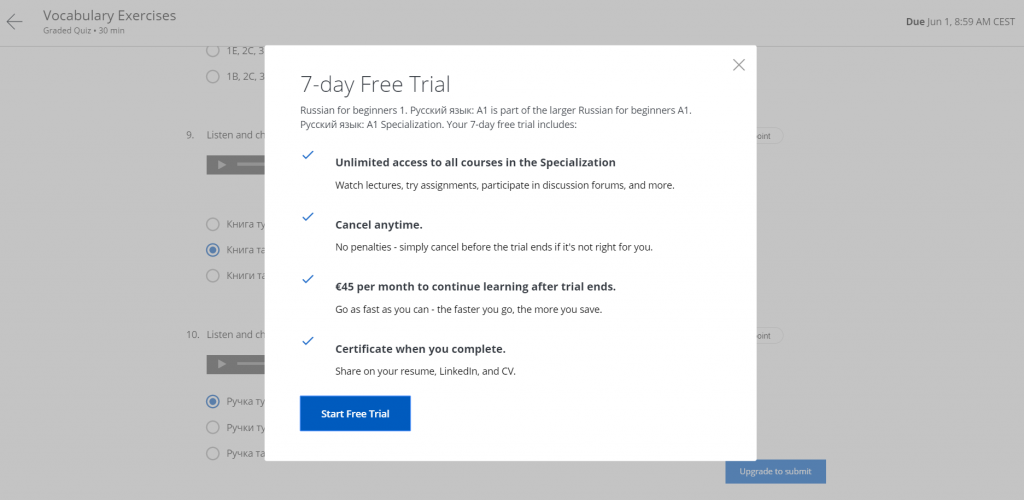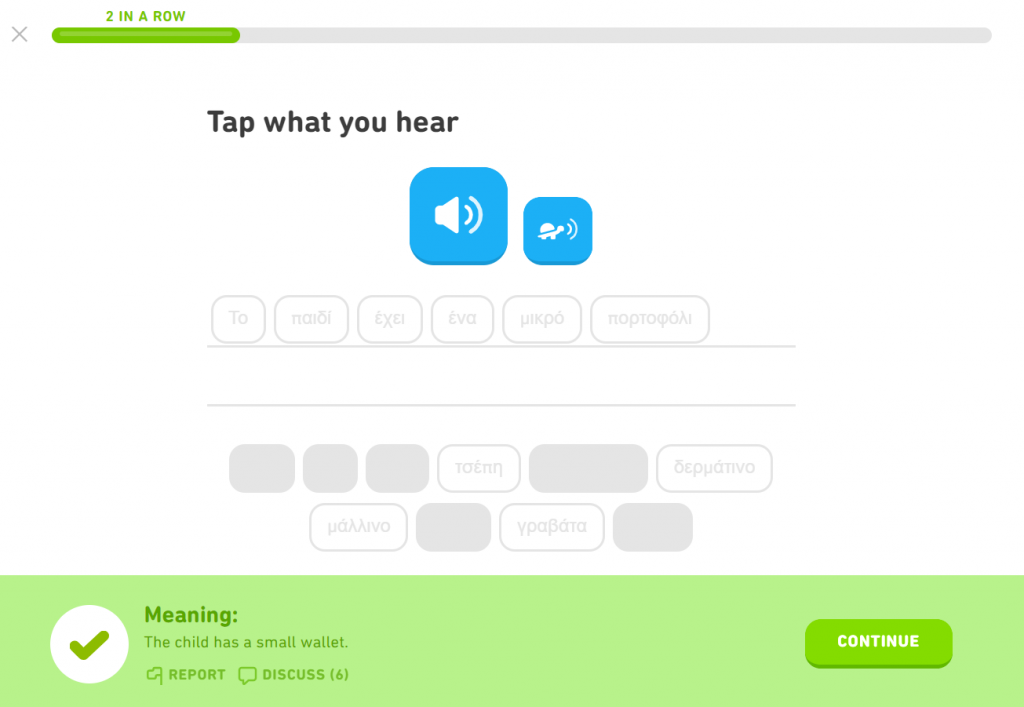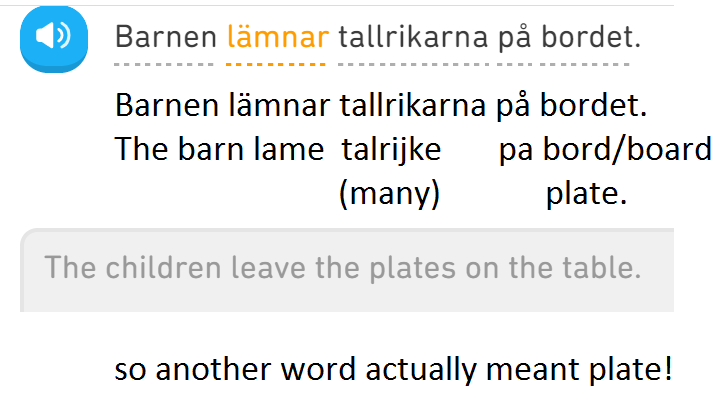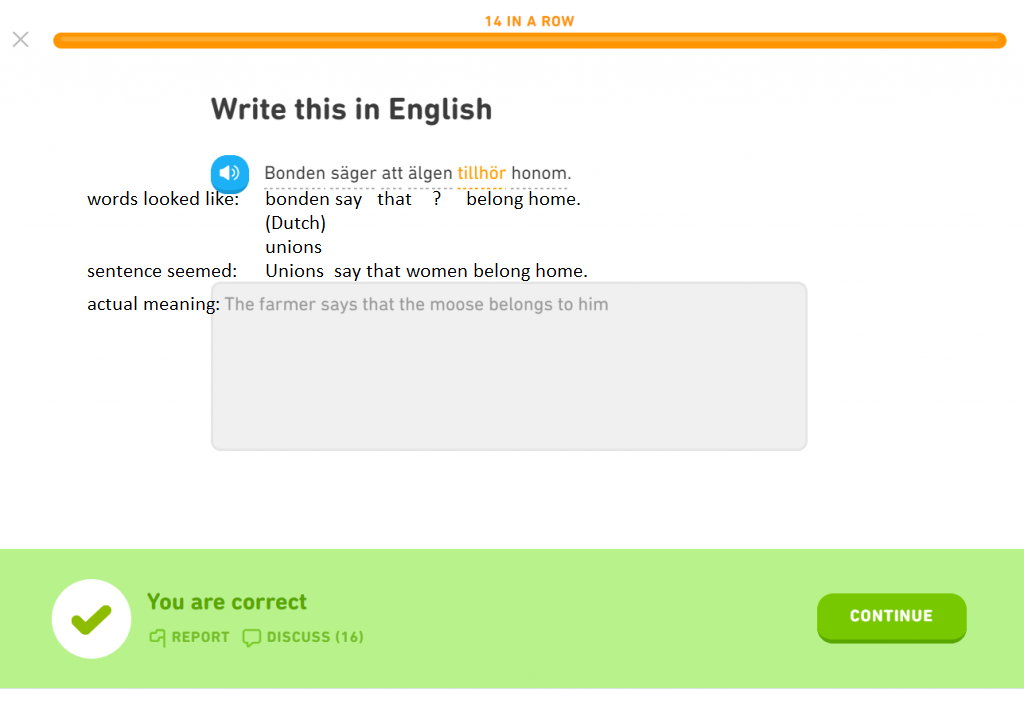Learning Russian on Coursera
I just started one of the Russian language courses that universities offer through Coursera. The moment I checked, there were 47 beginner courses. I decided to start one from St. Petersburg University to get an idea. I wanted to do a few modules to try it out at least and compare it with language learning methods from books and apps for a later review. But in order to submit my first test, I need to upgrade:

Learning Chinese on Coursera
So I continued my Mandarin course from Beijing University on the same platform. text I learned below conversation. I added the characters below the corresponding pinyin sound to learn the connection better.
A: Nǐ shì nǎ guó rén?
你 是 哪 国 人? = Where are you from?
B: Wǒ shì Zhōngguó rén. Nǐ shì nǎ guó rén?
我 是 中 国 人。你 是 哪 国 人? I am Chinese. Where are you from?
A: Wǒ shì Měiguó rén. Tā shì nǎ guó rén?
我 是 美 国 人。她 是 哪 国 人?I am American. Where is she from?
B: Tā yě shì Zhōngguó rén.
她 也 是 中 国 人。
She is also (a) Chinese (person).
🇩🇪🇮🇹🇫🇷🇪🇸🇵🇹 Throughout the day I have followed the news in German, Portuguese, Italian, French and Spanish on the background switching languages and channels in my multilingual newsroom.
I repeated the same Japanese conversation from the chatbot on Mondly, cause I still found it very difficult.
Then I took a look at Arabic on that same app. As mentioned in one of my first posts on here I got to know Mondly a few days ago. I like the option to expand a menu to see an overview of the conjugation of a new verb:

But in this case it confused me, cause I couldn’t find back the word is in the translation. That happens in more languages, such as in Russian too. It does however seem like you need to be looking for a form from a form from that table as seen in the expansion window. Duolingo has a similar thing that can’t be avoided as all words show the translation when being hovered over.
Romanian on Mondly
I tried to start a Hindi course on Mondly but I realized soon I was overdoing it with yet another alphabet. As I just felt like trying one other language I did the two standard first exercises for Romanian. In case you didn’t know already, the name might tell you already that it’s a Romance language. Therefore it’s very easy to understand if you already know some brother/sister languages such as Italian, French, Spanish, Portuguese, Catalan or regional language or dialect, all being some kind of modern version of Latin in their region and beyond. So the only tricky thing with Romanian, like with all of them, for me at least, is not reading along with the audio, especially with the images, but the correct active reproduction in speaking or writing.
Greek on Duolingo

In Greek: Το παιδί έχει ένα μικρό πορτοφόλι.
Romanized: To paidí échei éna mikró portofóli.
Recognize: ped- one micro port- -folio
meaning parts: child- a small wearable/portfolio
English: The child has a small wallet.
Awesome how strange they seem at first, languages are so related, right?
Swahili on Duolingo
OK, so I am not really up to learning Swahili at this moment, but I just want to get an idea of the language a bit more in the first few Swahili lessons on Duolingo than just Hakuna Matata as I’m working on a new language learning method.

Just when you’re about to call it a day, the little motivating owl tells you to go on:


The barn lame? talrijke (many) on the plate.

Sometimes Swedish words look similar to words in English, German or Dutch. Sometimes that doesn’t help you translating it correctly at all. Especially here:

The little owl told me I met my daily goal. I finished watching Nyheter på lätt svenska the Swedish news for beginners with the optional subtitles in Swedish.